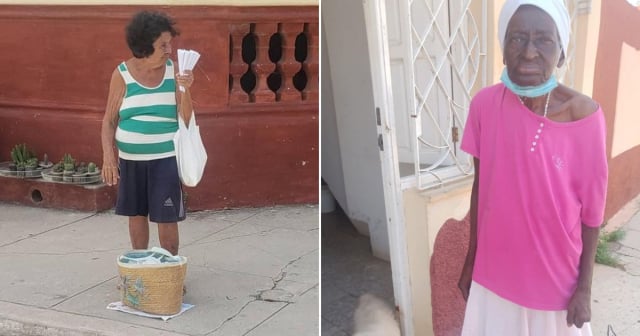A group of Cubans in the city of Cárdenas, Matanzas, managed to make the dream of rewarding a woman who, for 35 years, has sold peanuts on the streets a reality, becoming an icon for generations of residents of that city.
Kiryat Poey shared a reel on Facebook showing the emotional moment when the money is handed to the lady who sold peanuts for decades at the corner of Vives and Calzada.
The internet user reported that she gave half of the money raised in her honor to the peanut seller, noting that the amount obtained exceeded initial expectations. For security reasons, the exact amount was not revealed, but she assured that the goal was achieved.
Poey considered that this initiative highlights the supportive spirit of the Cardenenses, stating that: “We are the best, with all the humility and pride that every Cardenense feels, making a difference.”
The initiative arose from a post made by Christian Arbolaez in the Facebook group "Cardenenses en Facebook," where he asked if anyone remembered the lady who sold peanuts at the corner of Vives and Calzada.
Arbolaez admitted that, to his surprise, the lady is still selling peanuts in the same place, just like another older woman who is dedicated to selling Chinese squash.
Immediately, they organized the fundraising campaign to help the two elderly street vendors in the city of Cárdenas, for dedicating a large part of their lives to working on the streets.
Frequently, Cuban activists organize various initiatives through social media to benefit elderly people, who often live in precarious situations.
Last month, the Cuban Observatory for Human Rights (OCDH) presented the VII Report on the State of Social Rights in Cuba 2024, with revealing results about the Cuban reality.
The non-governmental organization emphasized in the document that "89% of Cuban families suffer extreme poverty," one percentage point more than last year and 13% more than in 2022.
One of the most significant points is the one that highlights that "7 out of 10 Cubans have stopped having breakfast, lunch, or dinner due to lack of money or food shortages."
According to the OCDH, "the most affected by this food shortage are people over 70 years old."
What do you think?
COMMENTFiled under:
